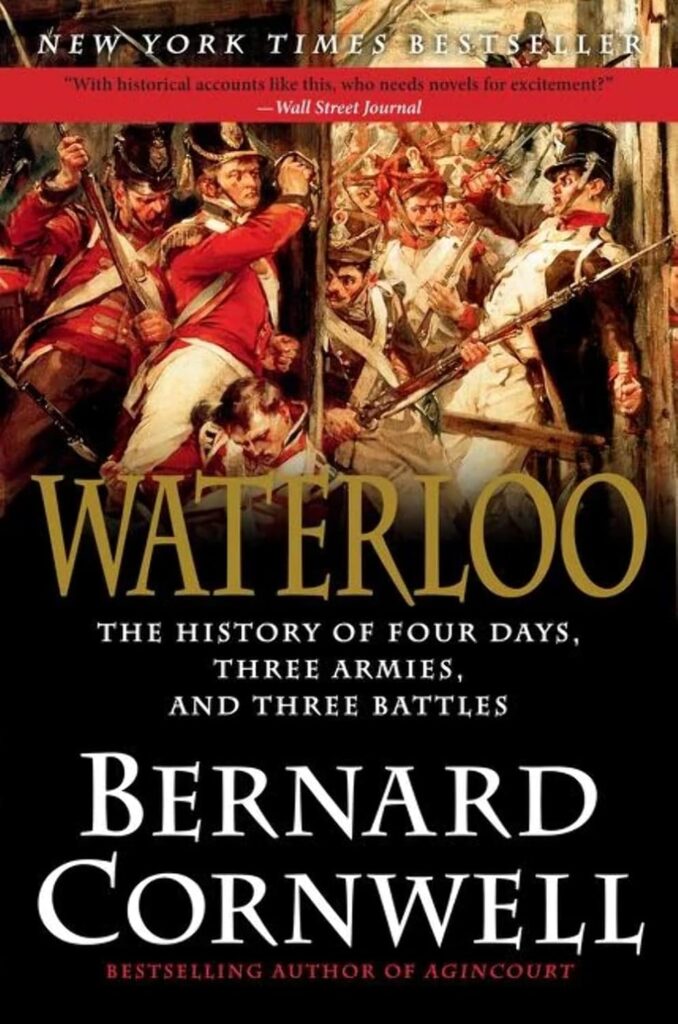
Staff Pick: Waterloo: The True Story of Four Days, Three Armies and Three Battles
Waterloo has gained everlasting fame as one of the great battles of history. It marked the final defeat of Napoleon Bonaparte—the diminutive but seemingly invincible Corsican General who crowned himself Emperor of France in 1804—by his opponent the Duke of Wellington. This rainy and overcast afternoon in Belgium in June 1815 changed the face of nineteenth-century Europe. Waterloo firmly established Britain as a superpower, secured the European monarchies, precipitated the rise of Prussia and Imperial Germany, and its aftereffects continue to be felt today more than two hundred years later. As Cornwell concludes in his introduction to this short and accessible history, “We might know how it ends, but like all good stories, it bears repetition. So here it is again, the story of a battle.”

Cornwell’s retelling is more than the dry history of a battle. It is a story of memorable characters (Marshel Ney, the “bravest soldier in the Empire,” repeatedly charging British cannon), climactic moments (Colonel Macdonnel’s defense of Hougoumont Farm), and almost unimaginable terror and suffering (trampling by horses, dismemberment by cannonballs). Drawing on his experience as a writer of historical fiction, Cornwell uses the journal entries and recollections of officers and common soldiers on both sides to bring the battle to life in all its messy calamity—with vivid, often gruesome, detail.
Until I read this book, I knew how Waterloo ended but not how it happened. Waterloo makes fascinating reading even today because it is so dramatic. It is a story of human success and failure, not merely of battle tactics and weaponry (although there is much of that of course). The details are riveting because we know what it is all building towards, although the outcome was by no means certain. The Duke of Wellington famously called it “a very near thing.”
There are countless books about Napoleon and Waterloo, but if, like me, you know nothing about the battle other than “Napoleon lost,” I recommend this concise and accessible history. I was able to listen to it as an audiobook thanks to the library’s OverDrive Audiobook Collection.

